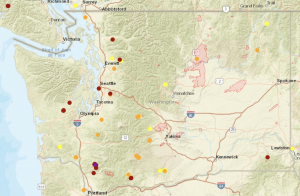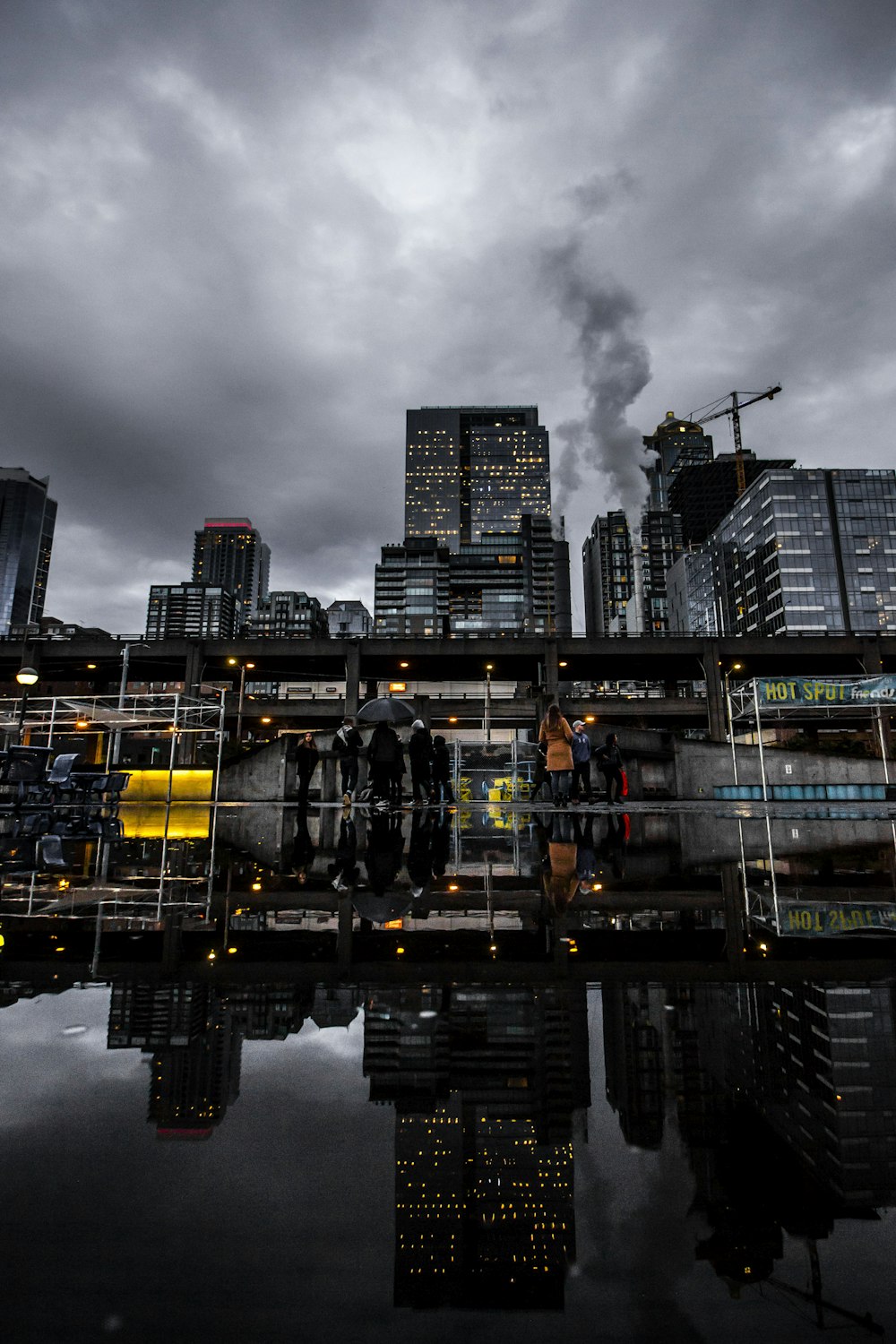12 Climate Change and its Impacts on Salmon and Wildlife
Esha Gollapalli

Wildfires and Air Pollution
With an increase of wildfires and smoke pollution all over Washington state, we must remember only some animals have the ability to escape. This years’ (2020) wildfires are believed to “have killed 50% of the state’s endangered pygmy rabbits, which inhabit sagebrush flats that burned this year” (Pennisi). This year’s unusual abundance of wildfires, led to the death of many species who were not adapted to the sudden environmental changes. The wildfires not only impacted land animals, but salmon and other marine species were also negatively impacted by wild

fires through increased water acidification which is detrimental to the marine ecosystem as the “recovery of orca, salmon, and other marine life is dependent on a healthy Puget Sound” (Norris). Studies indicate that the fires, even if not initially caused by global warming, climate change and greenhouse gases are a large promotor for wildfires (Soloman). Thus, proving once again that increasing global temperatures from human activities are proportional to the increase of wildfires leading to the demise of various species, all within Washington State.
Rapidly Changing Temperatures and Climate

Within the Puget Sound itself, animals are being forced to adapt to the rapidly changing temperatures, leading to declines of long-lived species. For instance, as the water temperature rises “the amount of time a spawning adult [Chinook Salmon] can persist in freshwater [decreases, which] decreases the total distance a fish can migrate on a given level of energy stores” (Tillman P). Not only is the salmon’s reproduction rate dramatically altered and forced to migrate elsewhere, but they are struggling to migrate altogether. Another species, “Keen’s Myotis” are unable to migrate at all making it very susceptible to temperature changes “that drive the timing

and length of winter hibernation [resulting] in a mismatch in timing of insect prey availability and emergence from hibernation” (Tillman P). Species such as the “Keen’s Myotis” remind us that global warming does not only lead to warmer summers, but colder winters as well. Therefore, allowing a much wider range of species to be impacted, to then impact its prey’s or predators’ populations as well, disrupting, not one species, but entire food webs.
Harbor Pollution Effects

Serving as a boat harbor, fishery, dumping ground, and recreational area, the Puget Sound inlet hosts a variety of pollutants that damage habitats and wildlife. A major pollutant in the sound is plastic. Rooting from litter or micro-plastics from other toxins, once in 2010 “a beached gray whale was found in West Seattle with 20 plastic bags in its stomach” (Washington). While plastic is so commonly used, we may disregard its incredible effects on the environment as it also is said to “never degrade” (Washington). Daily, boats and vessels are using the sound for fishing, whale watching, or transportation, disregarding the amount of damage done to whale populations from boat pollution (oil spills, chemicals, and debris). These fishing industries are a large contributor to the Chinook Salmons numbers, ever since “1971” in which “remaining wild populations of Chinook salmon [last lived] with minimal hatchery interference” (Bresssan). The impacts fishing and their vessels have on the whale and salmon population have remained steady with commercial fishing increasing, while fish populations decreased. The decrease in these populations have only led to need for more commercial markets, leading to a greater amount of pollution and deeper decline of these ecosystems.

A Call to Action
The Puget Sound’s wildlife has been noticeably affected from environmental damage from wildfires, overall global temperature trends, and direct inner region pollution. The animals are unable to adapt as quickly as the environment around this is changing, leading to declines or struggling populations that effect the entire biome around them. As people continue to use the Sounds natural resources and water supply, the need for climate change action only deepens.

